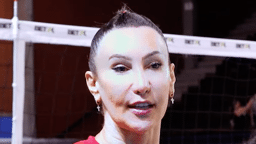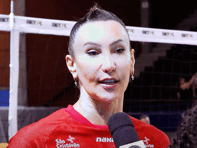(This article was published in 2002).
By: Brent Mullins
“I thought he was just an affable, good ‘ol boy. Then when I heard what he said about the Olympics, it revealed his true nature underneath.”
So my brother Kevin told me about Eric Heiden, the great Olympic speed skating champion, when we were talking about the Olympics and Eric’s refusal to participate in the opening ceremony. Kevin had worked with him when he was doing an orthopedics residency in Sacramento, talking mainly about a shared cycling interest [Eric was a professional cycler after the Olympics]. So he was very surprised and disappointed that Eric would have been so myopic, so out-of-touch as to conclude that either he would be The One to light the cauldron, or he wouldn’t participate at all.
Eric’s Olympic accomplishments are indeed amazing. Approaching that of the impossible. Five gold medals, in every distance offered, 500 to 10,000 meters. He and his sister were dedicated to athletics and grew up competing together [she got a bronze medal speed skating]. After taking a nasty spill down the mountain during the Tour de France, his next challenge after the Olympics, he relented to his parents call to “get a job!” and enrolled in medical school. He became an orthopedic surgeon, like his dad and his wife, and is the team doctor for the speed skating team in Salt Lake City now.
Despite his propensity at the time to reduce the importance of the Olympics, he’s stayed involved. So when he was asked to be a torchbearer in the stadium, he reacted as he always has to an athletic event: either be No. 1, or don’t even try.
So when he was told he wouldn’t be lighting the cauldron he said, “I have other places to be.” Right. He’s in Salt Lake, with the team, and he has something more pressing to do during Opening Ceremonies. Perhaps like showering and eating, like he did after breaking the world record at 10,000 meters, instead of staying around to watch the rest of the competition.
When I was talking to a friend about Eric’s arrogance, and how it changed my perception of him, he thought I was jumping to conclusions. Making something out of nothing. It was just no big deal.
OK–well, if the Olympics are just “the great whoopee” as Eric referred to them, I suppose he’s right. But most of us don’t look at it that way. Neither does Eric–otherwise, why would he continue to participate with the team? Is he really so tone-deaf to how he sounds? It reminds me of Bill Gates originally claiming [until he got married and his wife changed his mind] that not one penny of his billions would go to charity until he died. Now his foundation is one of the largest in the world.
It’s difficult to adjust an image we’ve built up of someone and compare it to reality. Like when we listen to someone on the radio a long time, and have built up an image of them–then we see a picture of them–or see them appear on TV. But yet heroes persist in our heads, and no place are the obscure made into the heroic more quickly, and completely, than at the Olympics. Like lotto winners, except they’re deemed to have actually earned it–the old fashioned way.
There are just so few people that we can consider heroes–Mark Bingham comes to mind–it’s just doubly disappointing when they deliberately do something that draws attention to their own clay feet. Sometimes we just want people to put on [athletic] socks and carry on, regardless of the substance of their feet.
Heroes rarely stand up to much scrutiny. By design, they did something extraordinary, which usually means something else was left shortchanged. Our illusions declare you CAN have it all. The realities teach us you really can’t. It just gnaws at my paradoxically hopeful nature to be faced with the evidence of just what the sacrifice/dedication/determination/discipline left behind in its wake: arrogance, ignorance, elitism or just plain bad manners.
Actors need a huge support group of writers, directors, make-up, lighting and the occasional fluffer to present us with such compelling characters. Presidents have advisors, writers, lawyers, and PR people and the occasional fluffer to be able to present us with compelling goals. And yet somehow we expect our athletes to be a hero of a more pure type, without any of the usual retinue that it takes to actually “produce” one. It’s a formula for the eventual failure of our iconic nurturing of heroes.
The longer we look, the more likely we are to find what makes them human. Flawed humans. Much more like us humans. Not a superhero, but someone who had the spotlight for a specific event–a period of time, even if just a few seconds–but someone much more like ourselves than they would care to admit or we would like to believe. “We wuz robbed!” is the feeling after discovering our hero was shortchanged into the ordinary, sometimes just as quickly as they were elevated up to heroic on our personal pedestals.
Disneyland is popular not just because it’s a clean park. Movies continue to rake in more and more money every year, and it ain’t because of the popcorn. Sports continues its pervasive presence not because we need to know how to stay in shape. They’re producers of heroes–perpetuators of our dreams, stretching our own perceptions of the possible, comforting us on with the notion that with luck, and a lot of hard work, we too can achieve our dreams. Dreams that could propel us to becoming a hero ourselves. Even if just to
our family or friends, if not just ourselves.
So along comes Eric, and there goes my hero.
I wuz robbed.







































